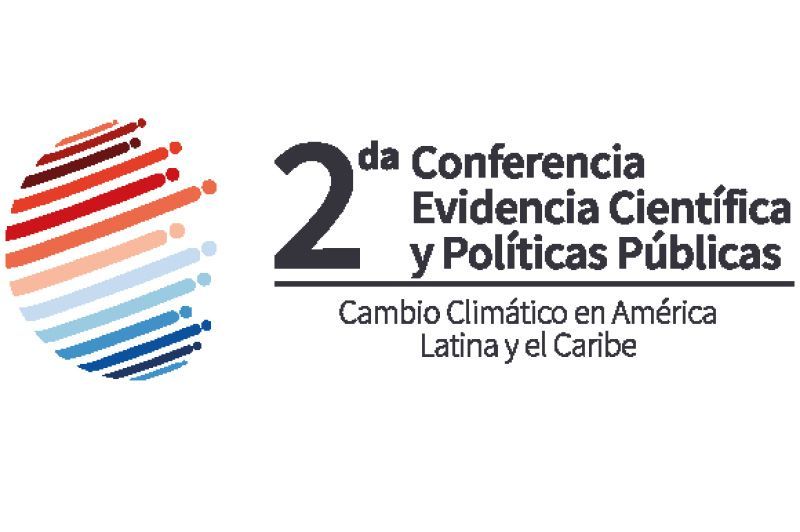The 2nd Conference on Scientific Evidence and Public Policy aimed to generate a space for reflection, linking scientific knowledge and decision-making.
The Second Conference on Scientific Evidence and Public Policy: Climate Change in Latin America and the Caribbean sought to generate a space for reflection and linking scientific knowledge and public policy decision-making.
Thus, in order to put science at the centre of the consideration of climate change, the Ministry of Science, Technology, Knowledge and Innovation of Chile together with the Scientific Committee on Climate Change, the European Union through the EUROCLIMA+ Programme, the Economic Commission for Latin America and the Caribbean (ECLAC) and the MERI Foundation, were invited to participate in the "2nd Conference Scientific Evidence and Public Policy: Climate Change in Latin America and the Caribbean", which began on 7 September virtually.
This meeting, organised in the framework of the support activities of the European Union and the EUROCLIMA+ Programme through ECLAC to the Presidency of COP 25, was made up of international multi-sectoral experts, and from 7 to 10 September they shared their views, reflections and experiences on the new scientific information available from the latest IPCC Report, climate change observation systems and the science-public policy interface.
At the opening session, Chile's Minister of Science, Andrés Couve, said that "since the creation of our Scientific Committee on Climate Change in 2019, we have sought to increase the use of evidence for sustainable public policies and to promote the availability of information for coordinated climate action. For this reason, and also from the role of the Government of Chile as Presidency of COP25, we have committed to establish formal channels between science and policy, which are fundamental to advance climate action".
Among the authorities and representatives of the international scientific community participating in this conference are the vice-chairs of the IPCC, Thelma Krug and Ko Barrett; as well as prominent researchers from centres dedicated to different areas of climate change in countries such as Chile, Peru, Brazil, Argentina, Colombia and Ecuador, such as Maisa Rojas, Sebastián Vicuña, José Marengo, Inés Camilloni and José Manuel Gutiérrez, in addition to representation from European organisations and research centres.
The Chilean Minister of Environment and President of COP25, Carolina Schmidt, during her speech highlighted the importance of the institutionalisation of the role of science in the formulation of Chile's Draft Framework Law on Climate Change, in the updating of the NDC, in the preparation of the Long Term Climate Strategy, among other national policies under development.
León de la Torre Krais, Ambassador of the European Union in Chile, pointed out that "from the European Union we believe that it is fundamental to strengthen the science-policy dialogue and to position science at the centre of decision-making".
For her part, Patricia Morales, Manager of Cortés Solari Philanthropy, stated that "Climate change is everybody's business and requires a decisive and multidimensional response. We cannot continue with the same recipes. We must put the climate crisis at the centre of decisions, from industrial to social", she added.
Finally, Ana María Molina, Executive Director of the MERI Foundation, stressed that "the call we make is to put science at the heart of decision-making and for this reason this conference has great value, contributing to the democratisation of scientific knowledge, as the latest IPCC report will be addressed in conjunction with communities, young leaders, economists and scientists to advance dialogue and decisions that will lead us to a sustainable society".
Information on the 2nd Conference on Scientific Evidence and Public Policy
The Meeting was held remotely between 7 and 10 September with the aim of reviewing the conclusions of the latest report of the Intergovernmental Panel on Climate Change (IPCC) and promoting the use of evidence for the generation of public policies in three main areas: updating scientific evidence; observation and monitoring systems; and scientific advisory mechanisms.
This initiative is developed as part of the contribution made by the European Union, through its EUROCLIMA+ programme, to Chile in its role as COP25 Presidency, to promote climate action, both in Chile and in Latin America and the Caribbean, with ECLAC as a key strategic partner.
Registrations and the programme of the initiative that is being developed as part of the contribution provided by the European Union, through its EUROCLIMA+ programme to Chile and with support ffrom ECLAC in its role as COP25 Presidency, are open at the following link: https://live.eventtia.com/es/2da-conferencia-cambioclimatico

